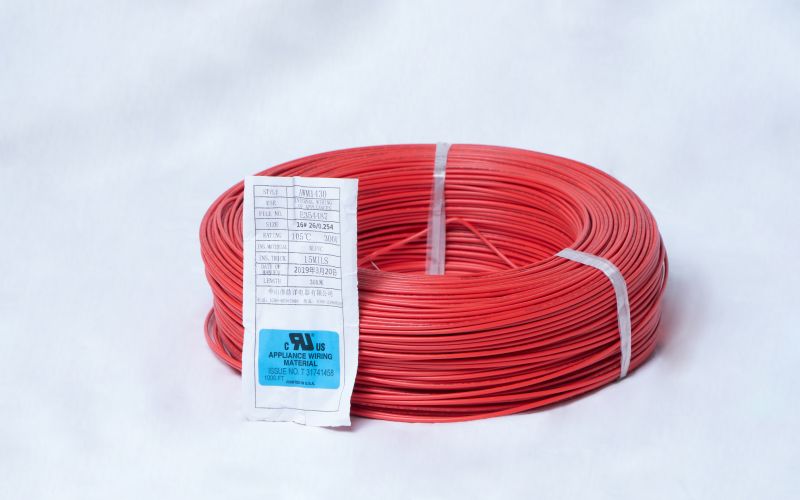Silicone wire is widely used in various industries due to its exceptional heat resistance properties. In this article, we will delve into the details of what makes silicone wire highly resistant to heat, its applications, and its temperature ratings.
1. Silicone Wire Composition and Structure
Silicone wire is made from a flexible and durable material known as silicone rubber. It is composed of silicon, oxygen, carbon, and hydrogen atoms bonded together in a unique structure. This structure gives silicone wire its remarkable heat resistance properties, making it an ideal choice for applications where temperature fluctuations occur.
2. Temperature Ratings of Silicone Wire
Silicone wire is designed to withstand high temperatures, and its heat resistance properties are typically measured through temperature ratings. These ratings indicate the maximum temperature at which the wire can maintain its integrity and functionality over time.
There are different temperature ratings for silicone wire, ranging from 150°C (302°F) to 300°C (572°F) depending on the specific grade and application. It is crucial to select the appropriate temperature rating based on the intended use to ensure optimal performance and safety.
3. Applications of Silicone Wire
The excellent heat resistance of silicone wire makes it suitable for a wide range of applications. Some common uses include:
- Aerospace industry: Silicone wire is used in aircraft and spacecraft systems where high temperatures are encountered.
- Automotive industry: It is utilized in the wiring harnesses of automobiles, where exposure to engine heat is a concern.
- Industrial equipment: Silicone wire is often employed in industrial machinery, engines, and equipment that operate in high-temperature environments.
- Heating systems: The heat resistance of silicone wire allows it to be used in heating elements and systems.

4. Benefits of Silicone Wire's Heat Resistance
One of the primary benefits of silicone wire's heat resistance is its ability to maintain its electrical conductivity even at high temperatures. This ensures consistent performance and minimizes the risk of electrical malfunctions or failures.
Additionally, silicone wire's heat resistance provides enhanced durability and longevity, making it more resistant to thermal degradation. It can withstand repetitive thermal cycles without losing its mechanical properties.
5. Factors Affecting Heat Resistance
While silicone wire has excellent heat resistance, several factors can influence its performance under high-temperature conditions. These factors include:
- Continuous vs. intermittent exposure: Silicone wire may have different temperature ratings depending on whether it is exposed to high temperatures continuously or intermittently. It is essential to consider the specific application requirements.
- Insulation thickness: Thicker insulation typically enhances heat resistance, providing better protection against temperature extremes.
- Environmental factors: The presence of chemicals, moisture, or other external factors can affect silicone wire's heat resistance properties. It is crucial to assess the potential impact of such factors on the wire's performance.
6. Proper Handling and Installation
To ensure the optimal heat resistance performance of silicone wire, proper handling and installation are crucial. Some best practices include:
- Avoid sharp bends or kinks during installation to prevent damage to the wire's insulation.
- Use proper connectors and terminations designed for high-temperature applications to maintain electrical performance and reliability.
- Regularly inspect the wire for any signs of damage or wear that may compromise its heat resistance properties.
Conclusion
Silicone wire is highly regarded for its exceptional heat resistance properties, making it a reliable choice for applications requiring resistance to high temperatures. Understanding the composition, temperature ratings, applications, and factors affecting heat resistance is vital for selecting and utilizing silicone wire effectively. By following proper handling and installation guidelines, the longevity and performance of silicone wire can be maximized in various industries and applications.


